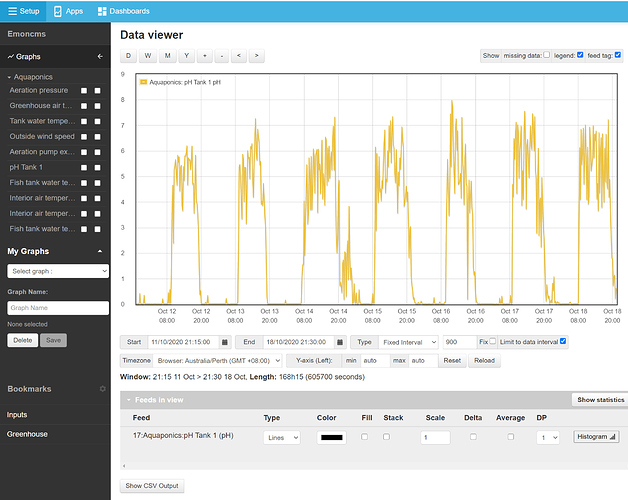In my presentation for the 2020 Aquaponics Conference I will be talking about Aquaponic technology. If you’re looking to get started in tracking your data we’d like to offer a list of sensors for various water and environmental metrics and would like to share the list with anyone who is interested in collecting data with sensors. If you want to add your input for something to be added to this list you could add it to the codebase below. Otherwise, a comment here will also be added for consideration.
Hi Jon. I’m using arduinos for my monitoring system. But the eBay pH sensor does not work well. I am trying to use it continuously immersed in the fish tank but it gives eratic results that have a large variation from day to night - I guess its temperature related. Can you recommend a pH sensor suitable for interfacing with arduino?
Hey there @john. Yeah when you say ebay sensor I wonder about the life of the sensor before you got it? Could have been use a lot or in poor conditions or even misconfigured or misused. There are lots of factors and I am writing a detailed post on how to select sensors based off these factors. I’ll post it here when I finish it up.
I would recommend checking out the list on github. It also depends on your budget so check out those vendors and see what works for you.
However, I’m guessing you know, the pH does in fact change throughout the day because of environmental factors but I’m guessing your getting wide ranges. The other thing could be the reading range of error which is good to note (sometimes sensors are within +/-1.0 of hte pH which is really almost not worth it because most AP systems are running between 6.5-7.2. Hope that helps!
The pH sensor I used was pretty cheap but new. It was very similar to this one:
https://www.ebay.com.au/itm/Liquid-PH0-14-Value-Detect-Sensor-Module-PH-Electrode-Probe-BNC-for-Arduino-Uj/283479104033?hash=item4200abda21:g:PlIAAOSw8S9a8GwZ&frcectupt=true
I use emoncms as a free open source data logger on a Raspberry Pi. Here is a graph of the output of the sensor. As you can see it gives garbage results at night, so to be honest I have been totally ignoring it and use the chemical test to monitor pH. It would be great to replace it with a more accurate and reliable sensor. I will check out the ones you have listed.
Cheap sensor or not, what would cause the bad readings only at night?
I think the main issue may be it’s a cheap sensor. but outside of that there are specific temperature ranges for optimal performance of a pH probe. That would be provided by the manufacturer but cheap probes are basically going to have lots of issues regarding environmental factors, calibration etc. This could have been the issue though with the temperature was outside the actual optimal range of the pH probe.
As good an answer as any - since we really don’t know. The spec (above) says 0 - 80 degC.
I think continuous pH probes are problematic. I have tried in my aquarium before and it didn’t work more than a few days. (But that was a long time ago)
Yep, you may want to look into the blulab guardian (connect) if you’re interested in a medium level sensor. We have one and I know lots of large farms that use them.
